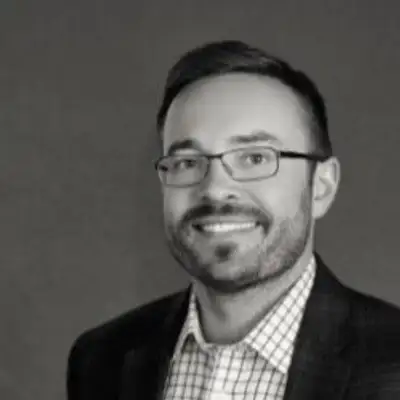Creators and Guests



What is Navigating Net Zero with Alexia Kelly?
Navigating Net Zero is a new podcast featuring conversations with practitioners and experts who are working through the complex realities of corporate decarbonization and sustainability.
We demystify and highlight the challenges, opportunities, and real-world experiences faced by the people leading their institutions' net-zero journeys.
Hosted by internationally-renowned climate change expert Alexia Kelly and brought to you by the Carbon Policy & Markets at the High Tide Foundation, Navigating Net Zero hopes to inspire action from this generation of climate leaders and the next.
Navigating Net Zero | Episode 5 (transcript–edited for clarity and ease-of-reading)
Guest: Jenny Morgan
Host: Alexia Kelly
Alexia Kelly: Thanks so much for joining me on Navigating Net Zero. It’s wonderful to have you here.
Jenny Morgan: Nice to be here. Thank you.
Alexia Kelly: A quick introduction: Jenny Morgan is a climate strategist, author, and climate champion known for turning big sustainability goals into real-world action. In her debut book, Cancel Culture in Climate, she explores how polarization, blame, and fear are stalling progress, and offers a hopeful roadmap for building trust, uniting diverse perspectives, and driving collective impact. She believes empathy and collaboration are our most underrated climate tools—and that the future depends on building bridges, not divides.
Jenny, I’m excited to talk about your book. What prompted you to write it?
Jenny Morgan: My first real experience with “cancel culture” in climate was at Microsoft. I helped draft a blog post showcasing our sustainability initiatives for COP, as the world was emerging from 2020. I was proud of the work—we’d pushed to ensure everything we did was more sustainable than before.
But that COP drew a lot of backlash—tied to the urgency around climate, the trauma of the pandemic, and the broader social justice movement. People were tired of hearing feel-good announcements; they wanted results. The scrutiny was intense enough that we deleted the blog. That’s when I saw fear, not progress, driving decisions. Since then, I’ve seen similar dynamics everywhere—debates that default to shame, blame, and division rather than collaboration that gets results.
Alexia Kelly: That was Glasgow, right? We’ve only seen polarization increase—in climate and in U.S. politics more broadly. How do you define cancel culture in the climate space, and how is it showing up now?
Jenny Morgan: When we prioritize shame and blame over action, that’s cancel culture. In debates about which actions to prioritize, instead of using evidence about what’s most effective, we attack the opposing idea or its proponents. We focus on finger-pointing rather than figuring out the mix of solutions that will actually deliver the outcomes we want.
Alexia Kelly: A live example is the fight over what “counts” as the right kind of corporate climate action—strictly within your supply chain and inventory versus what delivers the largest atmospheric reductions quickly and at the lowest cost. Instead of “both/and,” it’s become a bright-line divide—especially in carbon markets and the role of offsets in corporate strategies.
You moved from Microsoft to Tradewater. Tell us about that transition and how you’re seeing this play out in your work.
Jenny Morgan: I first heard about Tradewater on a podcast and loved the immediacy of the impact. I gravitate to actions with measurable, near-term results. I worked with them as a buyer-supplier partner for about two years, felt part of the team, and when a role opened, I jumped.
Tradewater is best known for destroying legacy ozone-depleting substances—old refrigerants and halons—that have extremely high global warming potential and also deplete the ozone layer. People think of them as historical, but there are still an estimated 24 billion tons of these gases worldwide. We track them down and destroy them. We also plug orphaned oil and gas wells that are leaking methane. I think of us as a cleanup crew for past industrial mistakes, while others innovate new systems to prevent future ones.
Alexia Kelly: A common reaction is, “Shouldn’t industry clean up what it created?” How do you respond?
Jenny Morgan: In a perfect world, yes. In reality, capital flows to future-proofing and growth. Cleaning up the past isn’t considered “sexy” by industry—or by governments. It’s been decades, and if it were going to happen on its own, it would have. That’s why organizations like Tradewater—and functioning carbon markets—are essential to scale this work.
Alexia Kelly: What role does voluntary climate action play in enabling your work?
Jenny Morgan: We operate in both compliance and voluntary markets. We started in California’s compliance market, then expanded globally into the voluntary market—our first international project was in Ghana. We’re now active in 14 countries and growing. Both markets have value. Regardless of personal views, we have to operate in reality: carbon markets with integrity and transparency work. Reaching across the aisle and focusing on the shared goal—that also works. I’m putting ego aside and focusing on what delivers results.
Alexia Kelly: In the book you distinguish between accountability and cancel culture. Can you unpack that?
Jenny Morgan: Cancel culture divides and shames. Its goal is to call out and stop a person, company, or idea. Accountability spotlights a problem and then works together on solutions. One is punitive and paralyzing; the other is constructive. Venting can feel good, but it delays collective action. Accountability asks: What went wrong? What changes now? How do we improve?
Alexia Kelly: That’s especially relevant in carbon markets and the broader solutions space. We’re still learning what works. Twenty years isn’t long to build a global commodity system from scratch. We need to hold ourselves accountable when methodologies fall short or data improves—but we also need space to keep going.
One of my favorite lines in your book is: “We don’t need 100 people doing climate action perfectly; we need 8 billion doing it imperfectly.” How do we balance accountability with speed, innovation, and broad participation?
Jenny Morgan: We need more humanity in climate work. We rarely acknowledge the learning curve: “We did well this year and will do better next year,” or “This didn’t scale as we hoped.” That’s normal in any fast-moving field. Urgency means version twos and threes of methodologies, better data, and course corrections. We should celebrate real progress—even when it looks incremental—and push for what’s next.
Alexia Kelly: The scale and urgency are massive, but the inertia is real—especially inside large, distributed organizations. The human side of change is hard. On-ramps matter: RECs, carbon credits—things that are relatively low lift but get teams moving, budgeting, and learning. How do we create more space for second chances, failure, innovation, and continuous improvement?
Jenny Morgan: Remember that “companies” are people making decisions at different stages of their climate journey. Some are taking a first step; some have stumbled publicly; some acted in bad faith. Normalize accountability—and re-emergence after mistakes. In the book I offer frameworks: how not to cancel, how to show up with curiosity (including resisting the urge to have an instant opinion on everything), how to communicate progress without greenhushing, and how to rebuild after missteps.
Alexia Kelly: I lost my mom this year, and it changed how I want to show up—more kind, more direct, less tolerance for wasted time. I’m frustrated that we’ve spent years arguing over semantics—greenwashing, greenhushing, target definitions—while an imperfect but powerful solution set sits in front of us. Carbon markets aren’t perfect, but they went first. That’s hard. How do we move past this moment?
Jenny Morgan: First, accept that good ideas get abused—that’s the exception, not the rule. It’s unfair to let one exposé define an entire system meant to accelerate action. Second, set boundaries and practice mindfulness. None of us is “the person in the history book who ended climate change.” Show up as your best self, consistently—that’s influential. And look for tangible positives: a family member’s changed behavior, a cross-team collaboration you unlocked, a supplier partnership you stood up. Those wins matter.
Alexia Kelly: I try to assume good intent and return to shared goals—but sometimes I’m realizing we don’t actually share objectives. Driving expensive, not-yet-available technologies into supply chains is vital—but so is maximizing near-term atmospheric impact with limited resources. Your “recover and rebuild” questions were helpful: (1) Have you heard and absorbed warranted feedback? (2) Will you commit to continuous improvement? (3) Are you consulting peers so lessons spread?
We also need new collaboration models. What does good partnership look like?
Jenny Morgan: Start with genuine feedback loops—especially with employees, customers, and even competitors. When Crocs extended its net-zero target from 2030 to 2040, Allbirds publicly engaged as a peer, sharing lessons from its own product work. That kind of non-zero-sum exchange helps the whole sector. At Tradewater we regularly compare notes with other developers—even when we “compete”—because if more capital funds effective mitigation, we all win.
Alexia Kelly: Ironically, companies that are most transparent often get less of what you call the “flurry of fury.” Microsoft is a good example: very open about data and methods. Transparency is essential—and risky. How should companies communicate to avoid cancellation but embrace accountability?
Jenny Morgan: Share successes and obstacles. Be clear about what worked, what didn’t, and why—plus who’s responsible for the next step. For refrigerants: many standards don’t require reporting leaks. That’s like selling a house without disclosing mold. Some leaders go beyond the standard and measure risks that aren’t required. That’s holistic thinking. I love interactive sustainability reports that update in real time—true accountability, not just a static annual snapshot.
Alexia Kelly: Exogenous factors—economy, weather, emissions factors, strategy shifts, better data—can all move the numbers. Clear, consistent disclosure infrastructure is fundamental. The next few years, with new rules in California and the EU, will be telling—but we’re not there yet.
Jenny Morgan: Also: stop dumbing down sustainability reports to match a billboard. Yes, make them accessible and well-designed—but include detail. If everything is disclosed, you reduce accusations of greenwashing or greenhushing. Some may still say “do more,” but the facts will be there. Ask: is the objective to sell another shoe—or to reduce climate risk (which is business risk)?
Alexia Kelly: The environmental movement has long treated the private sector as the enemy. Some actors do exploit loopholes—but that’s not a reason to scrap the whole system. It’s like the tax code: close the loopholes; don’t abandon taxation. We still have to build the system.
Your book ends with: “Cancel culture and climate ends with you.” I love that. If we don’t choose to stop the infighting, we won’t get where we need to go—or mobilize voluntary action. Practically, how should we respond when we see cancel culture? Call it out?
Jenny Morgan: Yes—politely. Don’t “cancel the canceller.” Lead with curiosity. I share a story about a controversial leader who approached me about credits, seemingly wanting an easy transaction. Instead of judging, I tried to understand him. He loves the outdoors, cares about family, feels overwhelmed, and is often cast as a villain. That human connection built trust. He ended up investing millions—in and beyond our partnership. That wouldn’t have happened if I’d written him off.
This also applies at the dinner table: listen first. Understand what people value, then connect climate and equity to those values. We can’t do that if we don’t take the time.
Alexia Kelly: Where do you see the biggest opportunities to unlock more climate action now?
Jenny Morgan: More compliance markets coming online—and the courage to avoid fear-based paralysis. I worry fear is undermining CORSIA. It’s hard to secure letters of authorization, airlines are waiting, and developers are stuck. We need leaders to focus on what’s possible, close loopholes, accept imperfection, and build profitable, action-oriented markets.
Alexia Kelly: We should also underline short-lived climate pollutants. Acting quickly on methane and high-GWP gases has huge, near-term impact—permanent when destroyed, measurable, traceable, and cost-effective. It’s encouraging to see companies like Netflix and Google formally include SLCP destruction in their portfolios. What trends are you seeing?
Jenny Morgan: Momentum. Super-pollutant coalitions are forming, the Methane Mitigation Industry Council launched, and buyers and developers are aligning around measurable results. SLCPs are low-hanging fruit for shaping 2030 and 2050 trajectories. I hope big buyers treat this as a portfolio—and, not or: invest in methane and halocarbon destruction alongside other project types. It’s like a food pyramid of actions. I’m still waiting for that call from Google or Microsoft!
Alexia Kelly: It’s clearly ripe for scale—doable now and cost-effective. Building supply and understanding here is key to portfolio construction over time.
Jenny Morgan: Agreed. We should dust off Project Drawdown and the Climate Interactive tools—revisit the basics and mitigation pathways. We’re so deep in the weeds that we’ve lost sight of the forest.
Alexia Kelly: Exactly. Some days it feels like we’re arguing about the pattern on the bark of a 2021 tree. We need to step back and ask: are we focused on what actually moves the climate needle right now?
Jenny Morgan: Yes—and it’s past time.
Alexia Kelly: This has been a great conversation. What keeps you motivated?
Jenny Morgan: It might sound odd, but the turmoil gives me hope. It’s forcing people to reflect on how their actions affect others. Environmentalism used to be your one barefoot cousin’s thing. Now everyone—from families to CFOs—is asking how to make climate action profitable, practical, and protective of what they love. The urgency is sobering, but people are showing up. That energy motivates me.
Alexia Kelly: Where can people find you and your book?
Jenny Morgan: I’m on LinkedIn (Jenny Morgan). My day job is at Tradewater—tradewater.co. My book, Cancel Culture and Climate, is available on Amazon and at independent bookstores across the U.S., with global shipping.
Alexia Kelly: I’ve got my copy right here. It’s a fantastic—and timely—read. Cancel Culture in Climate: Polarization Is Setting Our Planet on Fire. Are We Ready to Fight Back? by Jenny Morgan.
Jenny, thank you for joining us—and for the call to fight back by building trust and momentum, not division.
Jenny Morgan: Thank you.